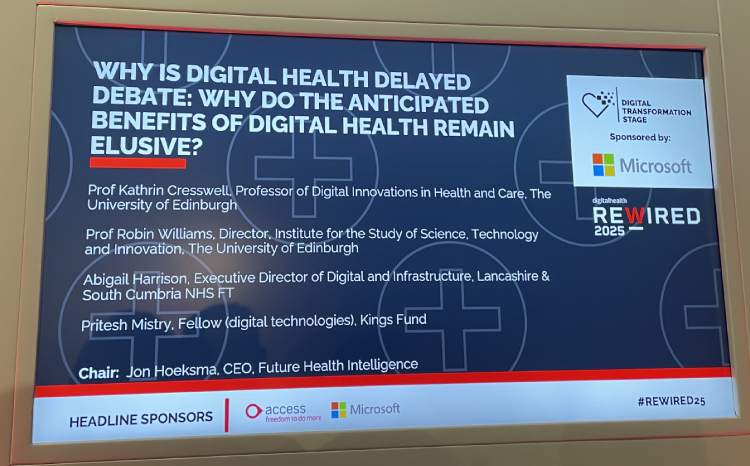Majority of NHS staff see tech investments as priority – BT survey
- 9 November 2023

Three-quarters of NHS staff see future investments in digital technology as a priority, according to a survey by BT that also found 60% of NHS employees believe more funds should be spent on growing the size of the workforce.
Digital diagnostic tools, including virtual imaging streaming and community-based healthcare services such as virtual wards, are already transforming access to health services. Yet, more than half of NHS staff (59%) believe pilots are not reaching widespread adoption soon enough, and that this is ultimately holding back patient care.
An overwhelming majority of NHS workers (93%) see speedier access to diagnosis and treatment as either critically or very important for the future of the healthcare system as hospital waiting lists reach record levels, with nearly eight million people waiting for treatment in August. An additional 1.5 million patients are waiting for a diagnostic test.
Survey respondents said they believe further investment would dramatically improve outcomes for patients and taxpayers, with four in five NHS staff convinced greater use of digital diagnostic tools would cut NHS wait times, and a similar proportion, 83% and 76%, respectively, expecting them to improve patient outcomes and cut NHS costs.
BT released the research Tuesday on the sidelines of an event at its London headquarters designed to spotlight several collaborations on diagnostics and patient engagement with technology companies including deepc, AXON Diagnostics and Soprano.
Professor Sultan Mahmud, BT’s director of healthcare, said: “Those on the frontline and behind the scenes have told us that investing in digitally-enabled services like diagnostics, care closer to home, and the careful use of AI in areas like diagnostics and NHS back office functions, could help improve productivity.
“We have the technology – what we need now is a co-ordinated approach. Government, citizens, NHS leaders and tech providers must work together to focus on the investment in infrastructure and delivery mechanisms that can help the challenged workforce. This is about realising the digital dividend of improved patient experience and reduced administrative burden for our clinicians.”
Over the past two years, BT has been developing its healthcare business, setting up a clinical advisory board in order to help it design products that are matched to the needs of the NHS. It also launched its Vanguard Programme, which is designed as a “collaborative space” to help frontline healthcare workers try out and evaluate technology to ensure it fits local requirements.
In May, the company outlined its ambitions to use its incumbent status, connectivity expertise and influence as a corporate powerhouse to help play a key role in powering the digital networks of the UK healthcare system.
The company told Digital Health News that its vision could be divided into three themes: health navigation, which helps to define patient relationships with the healthcare system; patient flow, which allows hospitals and healthcare providers to move patients efficiently through the system; and remote care.




